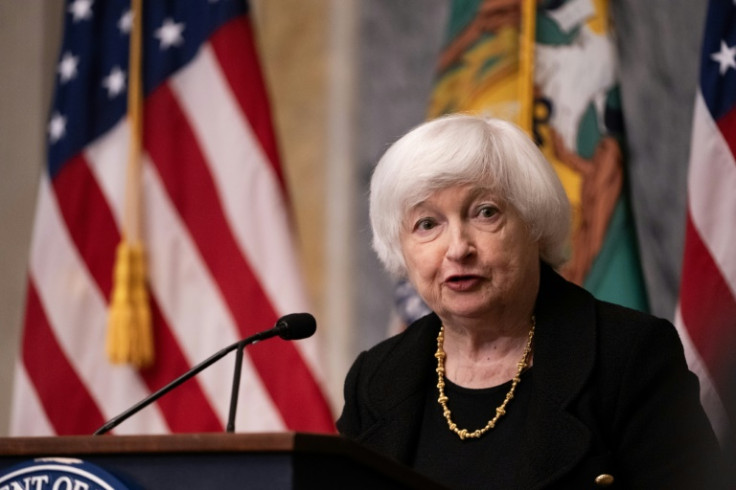
The United States plans to contribute $20 billion to a G7 loan package for Ukraine and could soon announce new sanctions targeting Russian weapons procurement, Treasury Secretary Janet Yellen said Tuesday.
"We're very close to finalizing America's portion of this $50 billion loan package," she told a press conference, as world financial leaders gather in Washington this week for the annual meetings of the International Monetary Fund and World Bank.
But Yellen added: "What I want to emphasize is that the source of financing for these loans -- This is not the American taxpayer."
The loan involves profits from the interest on frozen Russian assets, and Yellen told reporters that "Russia is paying for this support."
"We expect to be able to contribute $20 billion to the $50 billion G7 package," noting there remains a bit more work to get there, she said.
Leaders intend for the package to go to Ukraine by this year, she added.
Her comments come two weeks ahead of the US presidential election, in which Republican former president Donald Trump and Democratic Vice President Kamala Harris are neck-and-neck in the White House race.
Economic issues are top-of-mind for US voters, as households have been feeling the pinch from higher costs of living after the coronavirus pandemic, even as inflation has cooled.
The United States is also set to announce "strong new sanctions" as early as next week targeting Russia over its war in Ukraine, Yellen said.
"We will unveil strong new sanctions targeting those facilitating the Kremlin's war machine, including intermediaries in third countries that are supplying Russia with critical inputs for its military," she said.
It has been more than 2.5 years since Russia's invasion of Ukraine in February 2022, which prompted a series of US actions taking aim at Moscow's revenues and industrial complex.
Asked about US action in the Middle East, Yellen maintained that global oil markets should have "significant spare capacity" from Saudi Arabia and others despite US restrictions targeting companies in Iran's oil and petrochemicals sectors.
The aim was to cut off funding of what it said was the country's "destabilizing activity" in the region.
Yellen is expected to appear as well at upcoming US-China working group meetings, a platform at which Washington has earlier raised concerns about Chinese industrial overcapacity.
Yellen said she has not heard policy announcements from Beijing that address excess capacity in the way she was hoping.
With IMF and World Bank annual meetings ongoing, Yellen also urged countries to do more for nations struggling with debt.







